Photographs: Jitendra Prakash/Reuters BS Reporters in Mumbai
For corporate India, there seems to be just one villain in the worsening India story: The government.
A poll of 20 respondents comprising leading chief executive officers, bankers, market players and economists paints quite a grim picture.
An overwhelming majority of the respondents said the Indian economy was heading for an unprecedented crisis due to mismanagement, lack of reforms, weak political leadership and policy paralysis that had led to infrastructural bottlenecks and stalled projects.
. . .
India's economic crisis will deepen, say business leaders
Image: A woman ties a sack filled with subsidised food outside a fairprice shop in Seoni village, Chhattisgarh.Photographs: Sruthi Gottipati/Reuters
On the rupee, a majority said it would weaken by more than five per cent by the end of the year but interest rates would either fall or remain unchanged.
The safe places to park money in these volatile times were specific stocks and bank fixed deposits, the poll showed.
“It’s the lack of political will in implementing bold economic reforms, poor infrastructure, overdue labour and land reforms, power deficit and unfriendly business regulations that are responsible for this mess,” says Kiran Mazumdar-Shaw, chairman and managing director of Bengaluru-based Biocon.
. . .
India's economic crisis will deepen, say business leaders
Image: A woman exchanging damaged Indian currency waits for customers along a roadside in New Delhi.Photographs: Anindito Mukherjee/Reuters
Bajaj Auto Chairman Rahul Bajaj agrees.
He says the country is paying for the past four years of inaction and absence of reforms. “The government has spent a lot of money in loan waivers, the National Rural Employment Guarantee Scheme and the food security programme.
“All these populist measures have now added to the deficit. We should be treating the disease and not the symptom,” he adds.
State Bank of India Chairman Pratip Chaudhuri, however, blames it on global factors as well.
. . .
India's economic crisis will deepen, say business leaders
Image: A boy sells roses while standing on a road divider during monsoon rains in Mumbai.Photographs: Danish Siddiqui/Reuters
“The economy is facing problems mainly due to the global economic situation and liquidity squeeze in the domestic market,” he says.
Videocon Group Chairman Venugopal Dhoot says the sooner the government solves the capital account deficit problem, the better.
His prescription: Boost exports and make acquisitions by Indian companies easier.
There is a silver lining for companies with assets abroad, though.
Every 100-paisa fall in the rupee against the dollar is adding Rs 1,000 crore (Rs 10 billion) to the valuation of Videocon’s overseas oil assets, estimated to be worth $10 billion.
. . .
India's economic crisis will deepen, say business leaders
Image: A barber lights candles after a power-cut due to curtailment, at his shop in Srinagar.Photographs: Danish Ismail/Reuters
What went wrong?
Respondents say the Indian economy -- once a darling of foreign investors -- went into a tailspin in 2012 after former finance minister Pranab Mukherjee came out with the retrospective taxation proposal in his Budget.
“Retrospective taxation was the biggest setback.
It scared foreign as well as domestic investors,” says Ankit Miglani, deputy managing director, Uttam Galva Steels, in which steel magnate LN Mittal owns a significant stake.
The tax vitiated the atmosphere when foreign investors in the telecom industry lost billions following a Supreme Court decision to cancel 2G licences.
. . .
India's economic crisis will deepen, say business leaders
Image: Salesmen wait for customers at a footwear store outside a shopping arcade in Mumbai.Photographs: Vivek Prakash/Reuters
Respondents say the threat of the US Federal Reserve’s tapering of its bond-purchase programme (quantitative easing) is another reason why the equity and money markets are nervous, but government inaction takes the cake.
According to most, inflation will not fall in the next six months, even if the monsoon is good, though there is no threat of a downgrade of India’s sovereign rating by agencies in the near future.
CARE Ratings Chief Economist Madan Sabnavis says the economic slowdown can be attributed to a sharp decline in demand from consumption, investment, government orders and exports.
Consumption is down due to high inflation, as households spend more on food.
. . .
India's economic crisis will deepen, say business leaders
Image: A customer hands a bundle of Indian Rupee currency notes to a teller at a financial institution in Mumbai.Photographs: Vivek Prakash/Reuters
Investment is down due to issues like $120-billion projects being stalled, power plants going without gas, SC banning mining in many key states, etc.
Government spending is down due to fiscal constraints and exports have fallen due to depressed global conditions.
“Therefore, while one tends to look at interest rates only, these factors have kept growth down,” says Sabnavis.
Respondents say until these issues are sorted, it will not be possible for the economy to revive.
On the rupee, JPMorgan’s Adrian Mowat says policy options are limited for the government and the Reserve Bank of India.
. . .
India's economic crisis will deepen, say business leaders
Image: A vegetable vendor sits under an umbrella on a tarpaulin sheet at a market during monsoon rains in Mumbai.Photographs: Vivek Prakash/Reuters
“They have announced reform-plus-technical measures to support the currency.
“These have not worked,” he says.
The International Monetary Fund would typically prescribe higher interest rates to suppress domestic demand and lower imports to address the current account deficit.
“This option is politically unpalatable, especially with general elections next year. “Arguably, and more importantly, the equity flows are important in funding CAD.
“Higher interest rates and lower growth would likely result in foreign selling,” he says.
Miglani says it’s time the government relaxed norms for Indian companies to dollar debt.
. . .
India's economic crisis will deepen, say business leaders
Image: Labourers use a handcart to carry sacks at a wholesale grocery market in the old quarters of Delhi.Photographs: Ahmad Masood/Reuters
“When interest rates are high, dollar should flow in, but foreign direct investments and those from foreign institutional investors will not happen because investors are scared. So, the only option is debt. But right now, most of the debt is for capital expansion,” he adds.
U R Bhat, MD, Dalton Capital, says: “A general sense of drift among policy makers is the prime reason for this mess.
“This is probably because of the prosecution of some senior government functionaries for unfair decisions in the past that led to ineffective governance.”
. . .
India's economic crisis will deepen, say business leaders
Image: A worker keeps baked rusks after taking them out from an oven at a bakery in Mumbai.Photographs: Danish Siddiqui/Reuters
Where to invest?
So where does an individual or a company deploy cash?
Thirty-nine per cent of respondents say investing in specific stocks is a good option, while 33 per cent pitch for bank deposits.
Respondents say RBI has done its bit and now the ball is in the government’s court to change policies and improve sentiments.
The long-term measures should make sure the economy revives and short-term measures improve the sagging market sentiment.
“Opening up of FDI has been a good step but we need to see government doing away with non-essential controls in a big way.
“India should make a negative list for FDI and everything else should be free, irrespective of the amount an Indian company wishes to borrow,” says Siddharth Shankar, economist and advisor to financial firm, KASSA.

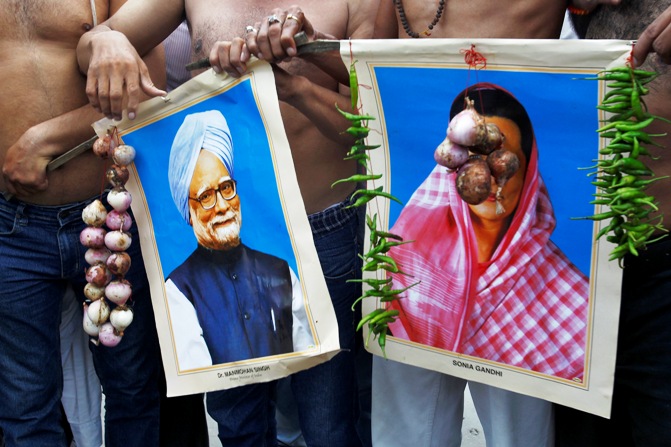
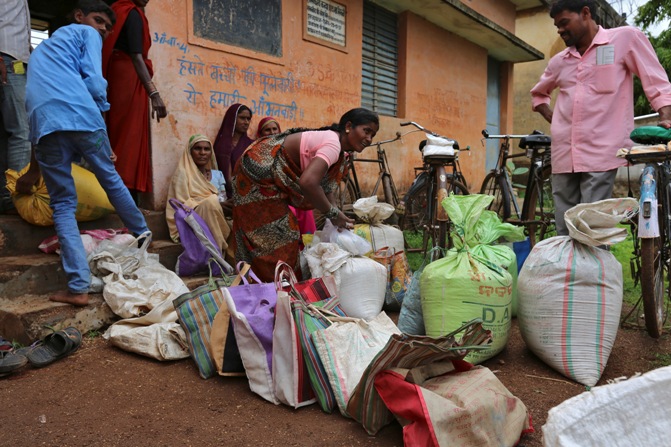


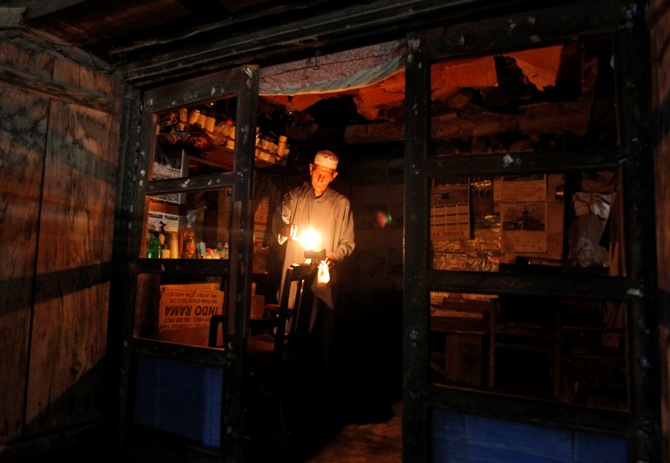
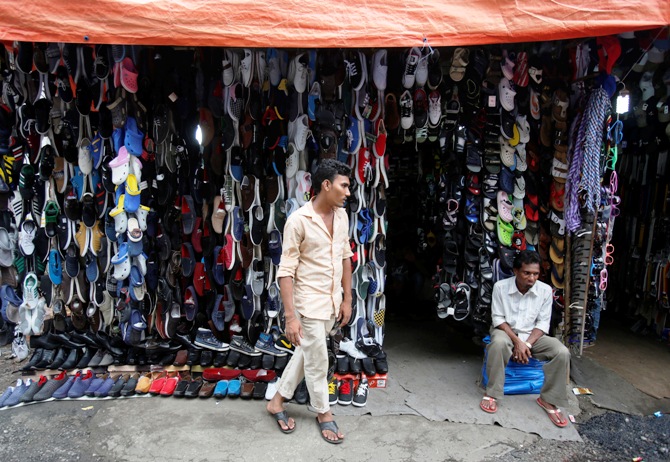
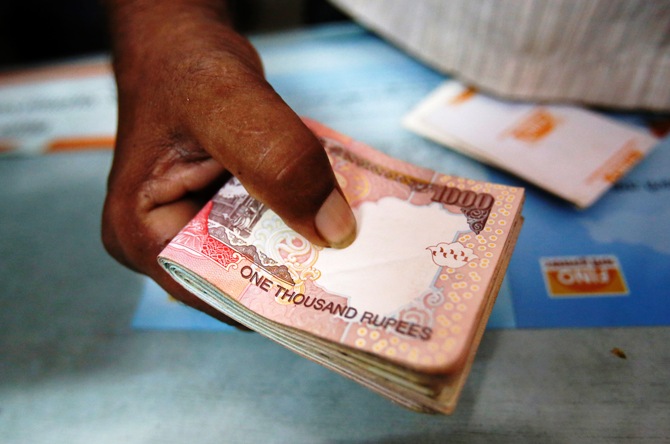
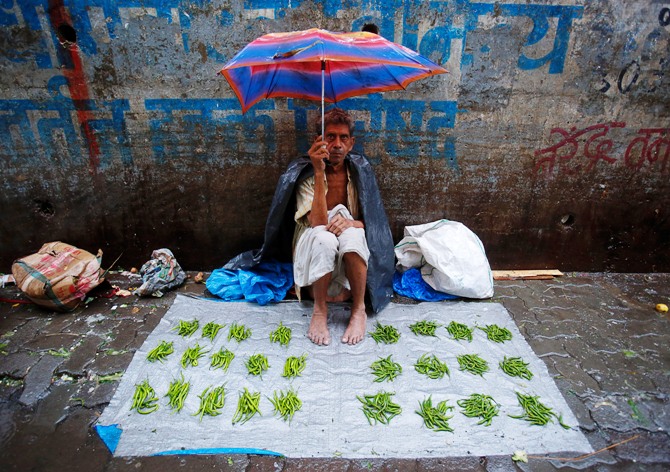

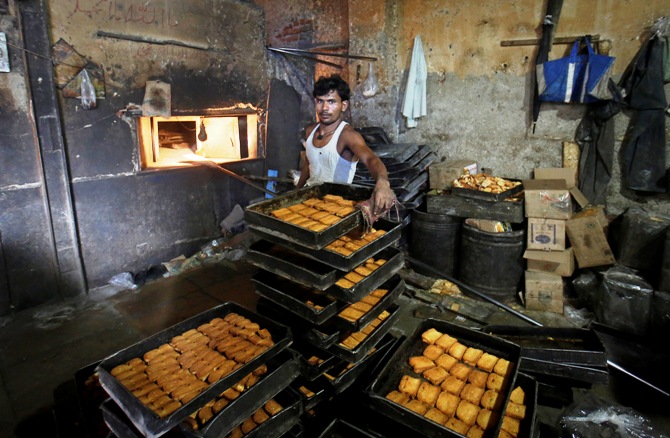
article